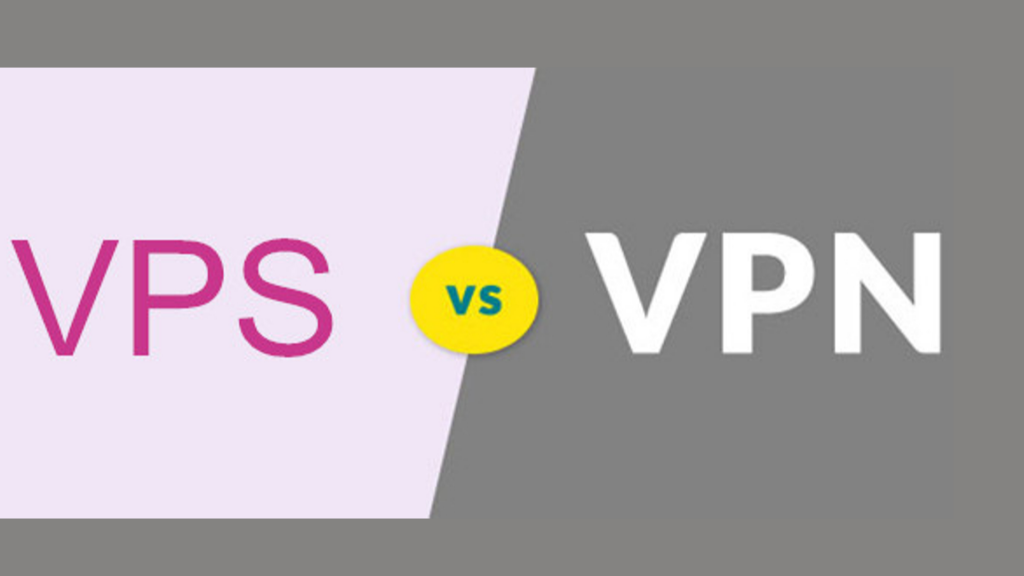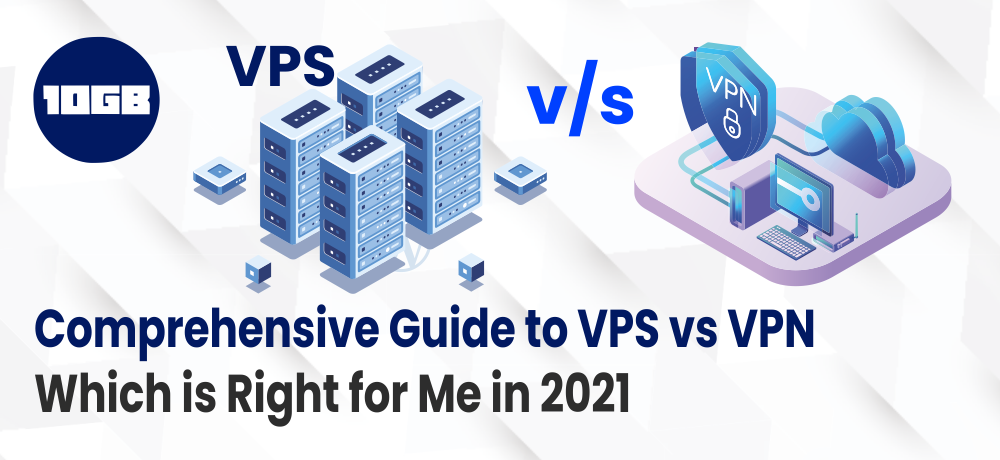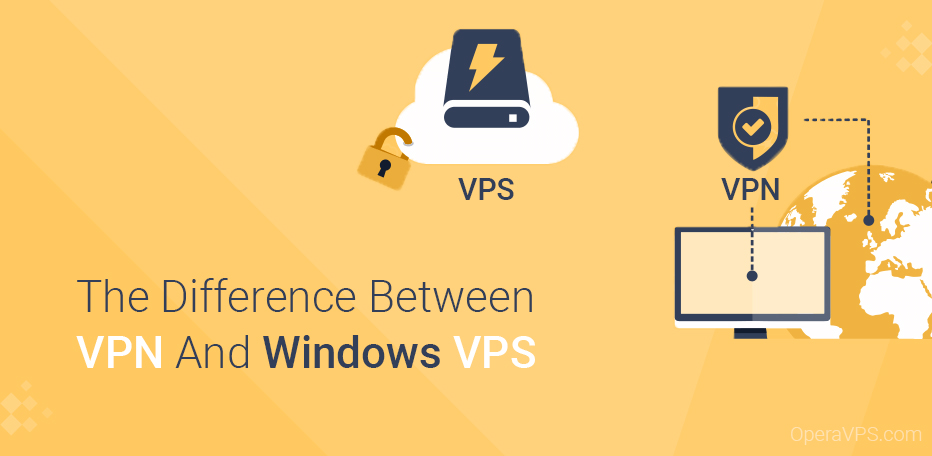Virtual Private Server (VPS) and Virtual Private Network (VPN) are both widely used technologies in the digital world. They both relate with the concept of virtualization where you can seamlessly use a remote computer as if it were your own. However, these two technologies differ in their functionality, purpose and benefits. Hence, in this article, we will discuss the difference between VPS and VPN, their pros and cons, which one is right for you and answer frequently asked questions (FAQs) related to both the technologies.
VPS vs VPN – What’s the Difference?
VPS and VPN are two very different technologies with different purposes. A VPS is essentially a virtual server that enables you to have your own space over the internet, where you can install any software, operating system and tweak the settings to your liking. It empowers you with more control and flexibility as compared to shared hosting. Additionally, VPS can be used for hosting websites, creating development environments, deploying web applications, and more.
On the other hand, a VPN is a virtual network that is created between your device and a remote server that is located in another geographical location. It creates a secure and encrypted channel between your device and the internet, which helps you to protect your online identity, bypass internet censorship or restrictions, and access geo-restricted content. Simply put, it extends your local network to a remote location and provides you with online anonymity.
VPS vs VPN – Pros and Cons
Both VPS and VPN have their own advantages and disadvantages, and you need to evaluate them according to your requirements.
Pros of VPS:
- You have complete control over the server and can customize it as per your preferences
- You get dedicated resources and don’t have to share them with other users
- You have the flexibility to scale up or down depending on the traffic and usage
- It’s more cost-effective than using your own hardware
Cons of VPS:
- It requires technical skills to manage and maintain the server
- You are responsible for the security of the server
- It’s not suitable for beginners who have no knowledge of server management
- It can be expensive as compared to shared hosting
Pros of VPN:
- It encrypts your online traffic and provides you with online privacy
- You can bypass internet censorship and access geo-restricted content
- It protects your sensitive data from hackers and cyber-criminals
- It’s easy to use and doesn’t require technical skills
Cons of VPN:
- You may experience a slow internet connection due to encryption and distance from the server
- Suspected VPNs can be blocked by some websites or services
- You have to trust the VPN provider with your online activities and data
- It may not work for all types of applications or protocols
Which One is Right For You?
The choice between VPS and VPN depends on your intended use-case and requirements. If you are looking for complete control and flexibility over your server to host websites or deploy applications, VPS is the better choice for you. However, it requires technical skills to manage and maintain the server, and you are responsible for its security. On the other hand, if you want to protect your online identity and privacy, bypass internet censorship or access geo-restricted content, VPN is the ideal choice. VPN is easier to use and doesn’t require technical skills, but it has a slower internet connection and you have to trust the provider with your data.
FAQs:
Q1. Do I Need Technical Skills to Use VPS or VPN?
A. Yes, you need some technical skills to use VPS, as it involves managing and securing the server, installing the software and operating system and configuring the settings. However, some VPS hosting providers offer easy-to-use control panels and pre-installed software that make the process easier for beginners. On the other hand, VPN is much easier to use and doesn’t require any technical skills. You just need to download and install the VPN client, connect to a server location and you’re good to go.
Q2. Can I Use VPS and VPN Together?
A. Yes, you can use VPS and VPN together for enhanced privacy and security. By using a VPN on your VPS, you can create a secure and encrypted connection to access the internet and protect your online identity. This is particularly useful if you’re using VPS for sensitive tasks such as financial transactions or storing confidential information. Additionally, a VPN can also help you bypass VPS firewall restrictions and access geo-restricted content.
Conclusion
In conclusion, VPS and VPN are two different technologies that serve different purposes. VPS is a virtual server that provides more control, flexibility, and dedicated resources to the user. VPN, on the other hand, is a virtual network that provides online privacy, security and helps bypass internet restrictions. Both have their pros and cons, and you need to choose the one that suits your requirements. If you need assistance in deciding which one is right for you, don’t hesitate to contact us at OperaVPS, and we’ll be happy to help you.
If you are searching about VPS vs VPN – Which is the Right Choice for You? – PureVPN Blog you’ve came to the right web. We have 5 Pictures about VPS vs VPN – Which is the Right Choice for You? – PureVPN Blog like What Is The Difference Between VPN And Windows VPS? – OperaVPS and also What Is The Difference Between VPN And Windows VPS? – OperaVPS. Read more:





What Is The Difference Between VPN And Windows VPS? – OperaVPS
Technology has had a crucial role in modern commerce. Especially in today’s digital age, technological advancements has made shopping simpler, more convenient, and productive. One of the largest technology companies that has transformed the world of commerce is Amazon. In this piece of writing, we will explore three key pillars of Amazon’s technology and provide you with a link to begin shopping on their website.
Purchase Link: Amazon.com
1. Easy-to-use Interface and Applications
One of the essential pillars of Amazon’s technology is its easy-to-use platform and applications. Amazon provides accessible applications for various devices, such as desktops, laptops, tablets, and smartphones. Users can effortlessly and comfortably buy items from anywhere and at any time. Amazon also offers various search and item filtering features that make it simple for customers to locate the items they want.
Purchase Link: Amazon.com
2. Safety and Data Privacy
The second vital pillar of technology for Amazon is security and data privacy. Amazon guarantees the security of user information and purchase records. Customers can buy products safely and with confidence on Amazon because they offer different safe payment methods, such as credit cards, debit cards, and other transaction methods.
Purchase Link: Amazon.com
3. Efficient Logistics
Amazon additionally has a robust pillar of technology in terms of efficient logistics. Amazon offers different shipping options, such as free shipping for Prime users. Amazon has warehouses and fulfillment centers worldwide, which allows them to deliver items fast and efficiently. Customers can effortlessly monitor their product deliveries through the Amazon app.
Purchase Link: Amazon.com
In conclusion, Amazon is an actual instance of how advanced technology has transformed the world of commerce. With an user-friendly platform and applications, strong safety and data privacy, and quick logistics, Amazon has helped thousands of users to shop online easily and comfortably. Do not hesitate to begin buying on Amazon and experience the benefits of technology in online shopping.
Purchase Link: Amazon.com